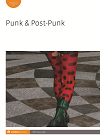
Full text loading...


Between 1935 and 1970, roller derby was a co-ed North American sport practised on roller skates and played on a banked track. The 2000s marked its revival when a group of women decided to give it a new lease of life: roller derby is now exclusively for women and takes place on a flat track. Teams assert their independence from established institutions and follow a model of ‘do-it-yourself’ organization. According to some critics, the roller derby revival is a continuation of the feminist Riot Grrrl movement. This article aims to understand how French roller derby players use the ‘alternative’ heritage of American women. By mobilizing the frameworks of Cultural Studies and Sport Subculture, the article reflects on the ways in which the legacy of Riot Grrrl, as a movement to challenge a dominant order, enables derby teams to create alternatives to mainstream sports models. Through 90 interviews and participant observation conducted between January 2020 and the present day, the study was able to show a use of the DIY ethos articulated between resourcefulness and a claim to independence. While Riot Grrrl radically defends the values of the punk movement, against the prevailing economic and gender order, French roller derby and its teams propose a hybrid sporting model, articulated between reflections on a different way of looking at sport and a move away from the DIY model of the early days.

Article metrics loading...

Full text loading...
References


Data & Media loading...
Publication Date:
https://doi.org/10.1386/punk_00231_1 Published content will be available immediately after check-out or when it is released in case of a pre-order. Please make sure to be logged in to see all available purchase options.